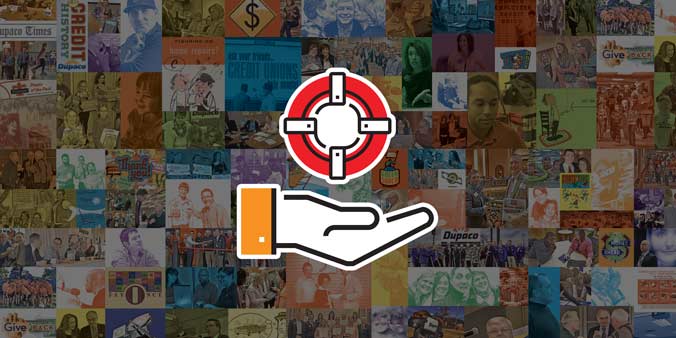
Facing a financial hardship? Here are steps you can take
Whether it’s a job loss or unplanned expense, financial hardship can strike when we least expect it.
When the unexpected happens, there are resources and tools available to help you through these tough times—and get to brighter days ahead.
Communicate with your credit union
If you’re out of work, the reality is that you might not be able to pay all of your bills right now. Focus first on your needs: Food and shelter.
If you must, delay repaying credit cards and other debts until you’re in a more stable financial position.
For the bills you can’t pay, communication is key. Reach out to your creditors and service providers. Ask whether you qualify for a:
Dupaco Community Credit Union stands ready to help and support you, and we’ll help however we can. Each situation is unique, and we’ll work to deliver a personalized solution to best help you. Please reach out to us at 800-373-7600.
“We believe the only mistake you can make is to not communicate,” said Dupaco’s Lisa Elskamp. “We understand things happen to good people, and we are here as a resource to help you when these financial hard times strike.”
Request a free Dupaco Money Makeover to review your financial picture >
Take advantage of other programs
Do you have Payment Protection on your Dupaco loans?
If so, you might be able to have the principal, interest and Payment Protection fee portions of your loan payment (up to the agreement maximum) canceled as a result of involuntary unemployment.
Dupaco offers the Payment Protection, and TruStage administers it.
Get answers to your Payment Protection questions here >
Evaluate your automatic payments and transfers
If you’re concerned about paying all of your bills right now, you could also temporarily pause automatic payments you previously set up with companies. But remember to communicate with those service providers if you’re unable to pay your balance in full.
Another option? If you take advantage of auto transfers or payroll distribution with Dupaco, you could temporarily adjust those as well.
Maybe you’re automatically setting aside money in a Dupaco savings account, but your budget is tighter now. You could temporarily reduce the amount you’re setting aside each time.
If you adjust your auto payments, transfers or payroll distribution, set a reminder for yourself to reevaluate your budget in a few months and determine whether you can resume your money strategies again.
To adjust to your auto transfers or payroll distributions at Dupaco, you can call your credit union at 800-373-7600.
Pull from savings first
If the money coming in isn’t enough to cover the money that must go out, look to your emergency savings first.
That’s what it’s there for.
Pull from the money you’ve set aside in liquid savings accounts. This way, you aren’t penalized for withdrawing funds from other important accounts, such as retirement savings accounts, said Dupaco’s Erin Engler.
Practice pausing
Your previous budget might no longer work during these uncertain times.
Be realistic about what you need.
“Utilize what you have first before you go out to buy more,” Engler said. “Practice a pause to really consider what your needs are right now.”
Check out 3 things to keep doing after a job loss >
Evaluate other expenses
If your income has decreased, you might find some simple places to cut expenses.
“You want to make sure the things you are paying for bring you joy, but you have to be practical about what you can truly afford, too,” Engler said.
Here are some questions you can ask yourself to uncover ways to spend less:
“Whenever you look at your budget, it’s give and take,” Engler said. “When you sacrifice, look for free opportunities.”
Request a free Dupaco Money Makeover to review your financial picture >



